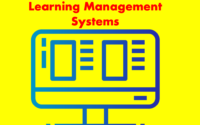
Teaching Quantitative Courses Online: Are Learning Tools Offered by Publishers Effective?
In recent years, online teaching has become extremely popular. Most institutions of higher learning are offering online courses in almost every field of study. Teaching any course online is challenging, but teaching quantitative courses, such as operations management, management science, statistics, and others, have added a more challenging dimension to online teaching. Publishers have been […]















